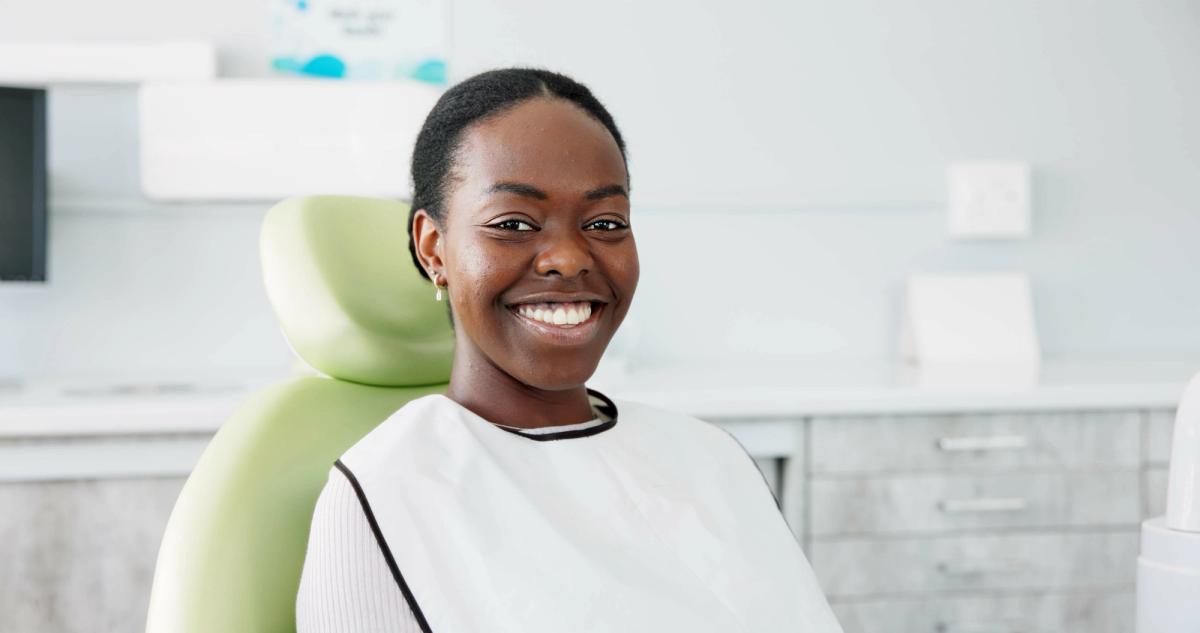Published on Sep 24, 2025 | 8 minute read

You brush, you floss (most days), and your breath seems fine—so why schedule a teeth cleaning? Because even strong hygiene leaves little places behind. Plaque hardens into tartar where bristles can’t reach, and tartar is stubborn. A professional teeth cleaning clears what your routine can’t, resets gum health, and gives your smile that smooth, fresh feel that makes everything—eating, talking, even laughing—easier.
A hygienist starts with a quick review of your health and any new symptoms. Then comes a thorough assessment of your gums, followed by gentle scaling to remove plaque and tartar above and below the gumline. Polishing smooths the enamel so new plaque won’t stick as easily. A fluoride treatment may be recommended to strengthen weak spots, especially for kids, patients with dry mouth, or anyone prone to cavities. The visit wraps with tips tailored to your mouth, not a generic checklist.
Inflamed gums don’t always hurt, but they do send signals—bleeding when you floss, puffiness, or a sour taste in the morning. Left alone, inflammation can progress to periodontitis, where bone begins to recede around teeth. Routine teeth cleaning visits interrupt that cycle. They reduce the bacterial load, calm the gumline, and make flossing comfortable again. Healthy gums also help control whole-body inflammation, which is one more reason this simple appointment is worth it.
Most healthy adults do well with a teeth cleaning every six months. Some benefit from three- or four-month intervals—especially if you’re pregnant, managing diabetes, wearing braces or Invisalign & clear aligners, or you’ve had gum treatment in the past. Timing isn’t one-size-fits-all; it’s about how your mouth responds and what keeps your gums stable long term.
If your teeth or gums are sensitive, say so. Topical numbing gels, warmed water for rinsing, and gentle techniques keep you comfortable. For anxious guests, we can pace the visit with short breaks, use distraction tools like music, and explain each step before it happens. A teeth cleaning should feel calm and predictable, not rushed or stressful.
A great teeth cleaning is the reset; your daily routine keeps the benefits rolling. Brush twice a day with a soft brush angled toward the gumline. Clean between teeth with floss or a water flosser every day. Rinse after snacks, sip water often, and save sugary or acidic drinks for mealtimes. If you grind, a nightguard protects enamel and keeps your gums happier by reducing clenching-related irritation.
Will a teeth cleaning hurt? It shouldn’t. If areas are tender, we slow down, numb, or adjust technique. Comfort is part of quality care.
Do I really need fluoride as an adult? Many adults do—especially with exposed roots, frequent snacking, or dry mouth. It’s a quick step with long-lasting benefits.
Can I do “deep cleaning” on the same day? If periodontal therapy is needed, we’ll explain why and help you plan it. A deep cleaning is different from a routine teeth cleaning and focuses specifically on infected pockets beneath the gumline.
Bleeding when you floss, a fuzzy feeling that returns minutes after brushing, or a sour taste in the morning are reliable signals. So are gums that look red instead of coral pink or teeth that seem a shade darker than usual. If your retainer or clear aligners gather plaque quickly, that’s another hint you’re ready for a teeth cleaning. Your mouth likes routines; a regular cadence keeps everything easier.
Tartar grows like barnacles—slow at first, then faster. When buildup sits, gums pull away slightly, forming pockets where bacteria thrive. That’s how gum disease takes hold. The fix is still straightforward if we catch it early, but it can require a deeper clean and more visits. Keeping your routine teeth cleaning means we remove the barnacles before they anchor.
Drink water, eat soft foods if your gums feel tender, and avoid seeds or popcorn hulls the rest of the day. If we applied fluoride, wait at least 30 minutes before eating or drinking hot beverages. Keep brushing gently at the gumline—especially the night of your teeth cleaning—to discourage plaque from settling in again.
Dry mouth, acid reflux, and certain medications increase plaque and raise cavity risk. Pregnancy can make gums puffy and sensitive. Braces, implants, and bridges create more nooks and crannies. None of these are roadblocks—they’re simply reasons to personalize your schedule and home toolkit. Your teeth cleaning is the anchor; the plan around it keeps your smile steady.
A clean, comfortable mouth can change your day. If you’re ready for that fresh start, call Pak Dental in Auburn Hills at 248-243-4876 to schedule a consultation and make your next teeth cleaning the easiest yet.